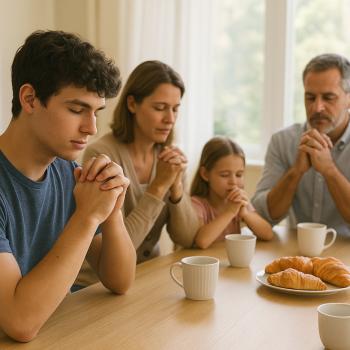Between these six conferences, at least 209 speakers were featured. Only one person spoke at multiple conferences -- social media consultant Charles Lee, at both Exponential and Q. There tends to be little overlap between the various conference subcultures, and attendees of one are unlikely to hear speakers from others.
Depending on the tribe, a conference might communicate that evangelical Christianity is theologically rigorous and intellectually respectable, or literary and creative, or committed to social justice. No one of these conferences covers everything that the Christian life is all about, but each provides a slice of the overall portrait.
While conferences are helpful for defining each tribe's subcultural identity, they may also have the unintended consequence of fragmenting evangelicalism into competing communities that no longer recognize one another as full brothers and sisters in Christ. If conference attendees self-segregate and develop relationships only within their particular tribe, then people find themselves in largely homogeneous communities where their vision is limited to their tribal emphases. We might find others who are like-minded, but we may not hear countervailing perspectives or alternate voices that could serve to correct imbalances.
In fact, it is possible that the tribalizing impulse within evangelicalism creates a situation where people only feel at home within their own particular subculture and do not feel comfortable in evangelicalism or Christianity at large, let alone other tribal subcultures. Fragmentation creates an environment in which the mere presence of people from other contexts makes people suspicious of more trans-cultural, broadly evangelical, or "ecumenical" settings.
An informal survey of April conference-goers found that many attendees were unaware of conferences other than the one they attended. And those who knew of the other conferences described them in ways that were not always positive. One Wheaton Theology attendee's perception of Together for the Gospel was "very conservative, hyper-Calvinist, negative toward women." A Q attendee described Wheaton Theology attendees as "too smart for normal people." A Together for the Gospel attendee perceived the Calvin Festival as "spiritually devoid of theology" and critiqued 4 Days 4 Justice as having "confusion over the Gospel." A Calvin attendee thought Q participants were "elitist."
A More Excellent Way
Yet fragmentation is not the only possible destiny for evangelicals. What may be needed are more pan-evangelical or pan-Christian contexts where people from multiple tribes can rub shoulders and learn from one another. Evangelicalism needs to recover what some have called the "village green," where the members of different tribes can find common ground. This could involve interdenominational movements and events such as the Lausanne Movement and the Cape Town 2010 Congress, or it could be as small as local churches joining together for a shared VBS. In the early 1990s, churches in my college town held a community-wide concert of prayer, and I was amazed and encouraged to see Presbyterians and Pentecostals, mainliners and evangelicals, high-church and low-church Christians alike, all praying together for our city.
Rather than segregate ourselves in the Big Sort, we could pursue the way of The Breakfast Club. The iconic 1984 John Hughes movie featured five teens spending a Saturday in detention in their school library. The five represent high school archetypes: an athlete, a princess, a brain, a druggie, and a countercultural "basket case." Over the course of the day, they get to know each other, and discover out that each is more complex than the stereotype. They have more in common than they realized. As New York Times film critic A. O. Scott put it, "the great, paradoxical insight of The Breakfast Club is that alienation is the norm, that nerds, jocks, stoners, popular girls and weirdos are all, in their own ways, outsiders."
Similarly, members of various evangelical subcultures may feel alienated from mainstream Christianity as a whole. But there is space within evangelicalism to hold together the dialectical tension between particularity and commonality. Within a larger 1 Corinthians 12 ecclesiology, we can discover that the different tribes are not enemy combatants, but rather different parts of the same body -- one body, one faith, one Lord Jesus Christ.
It seems to me that if participants from each of the six April 2010 conferences were put together in a high school library for a day, they might reprise the Breakfast Club experience. They might discover that despite their differences and tribal subcultures, they could indeed build relationships based on a common identity in Christ that transcends their subcultural distinctives. And perhaps they would discover that the future of the church is one in which the Reformed Calvinist, the academic theologian, the literary writer, the social activist, the church planter, and the culture maker all join together as interconnected citizens of the kingdom of God.
Al Hsu is an editor at InterVarsity Press, where he acquires and develops books in church and mission, cultural issues, spiritual formation, and global justice issues. He is the author of several books, including The Suburban Christianand Grieving a Suicide.He will be a delegate at the upcoming Cape Town 2010 Lausanne Congress in October. He and his family live in the Chicago suburbs.




